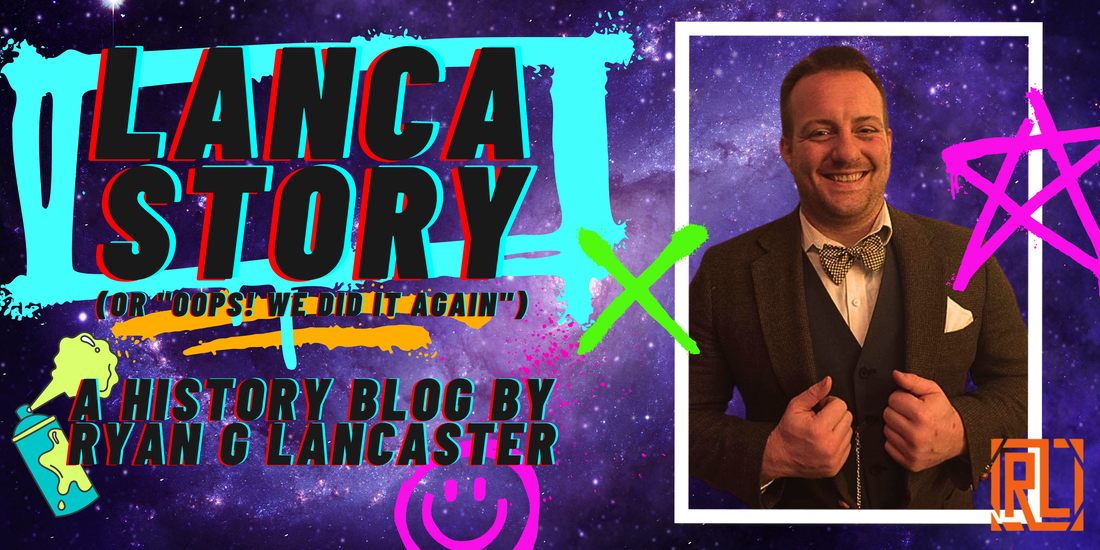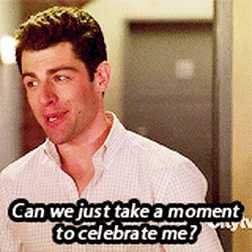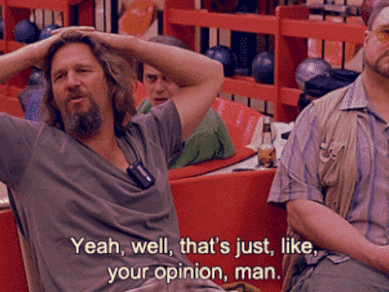|
(Disclaimer: This is not professional or legal advice. If it were, the article would be followed with an invoice. Do not expect to win any social media arguments by hyperlinking my articles. Chances are, we are both wrong). BY RYAN LANCASTER I'll lay it out for you without fryin' your noodle. We got ourselves this fancy phenomenon called the Dunning-Kruger effect, where folks who ain't got a lick of know-how about somethin' tend to reckon they're the bee's knees in that realm. Picture it: your wee bro dishin' out advice on courtin' dames when he has yet to have a good chat with a lass. Yup, that's the Dunning-Kruger effect struttin' its stuff right there in plain sight. In 1999, a pair of psychologists named David Dunning and Justin Kruger coined a rather fancy term for a truly amusing phenomenon. They were sitting there, pondering away, and said, "How about we call this funny situation where people mistakenly believe they're better than they really are by a special name?" And thus, the Dunning-Kruger effect was born. But let me tell you, my friends, it's not just some abstract psychological mumbo-jumbo; oh no, it goes far beyond that. This peculiar effect can significantly influence the course of history and other fascinating things. Consider Napoleon, the enigmatic military mastermind. He undoubtedly possessed an uncanny brilliance, orchestrating victories that stunned the world. Yet, his hubris grew insidiously, leading him to believe in his invincibility. A momentous blunder ensued when he set his sights on invading Russia amidst the unforgiving winter. Alas, his strategic misjudgment proved disastrous, for he grossly underestimated the expanse of the Russian terrain and the bone-chilling temperatures that awaited his troops. The aftermath unfolded as a resounding defeat, an extraordinary failure reverberating through history, leaving us to marvel at the magnitude of his misstep. In the twisted labyrinth of the Vietnam War, the pompous echoes of the U.S. government reverberated through the halls of power, boasting, "We are the best, and we will win everything!" Yet, their delusions of grandeur, fueled by an arrogant self-assurance, proved to be a woeful miscalculation. Warped by hubris, their comprehension of the situation became a grotesque caricature of reality, plunging them headlong into an abyss of calamity. As the hands of time relentlessly ticked away, they found themselves trapped in an unending quagmire, a seething cauldron of anguish and despair. And in the end, with ignominy clinging to their souls like a festering wound, they were left with no choice but to bow before the relentless tide of defeat, tails tucked meekly between trembling legs. Let's dive straight into the nitty-gritty of the Dunning-Kruger effect, that wretched beast with its sound, bad, and downright ugly sides. Here's the silver lining: this twisted little phenomenon can somehow stir up some motivation within those clueless souls, making 'em delve into the abyss of history, seeking knowledge like a desperate junkie hunts for his next fix. It's akin to the thrill of starting a fresh video game, brimming with the cocksure belief that you're gonna kick ass and conquer every damn level. My dear compadres that fiery passion can be a magnificent catalyst, propelling the whole godforsaken learning process to unforeseen heights. Aye, there be times when naivety holds a hidden boon. The folk who grasp not the rules o' the game may dare defy the established order and foster ideas brimmin' with novelty. They could well upheave the realm of history through their audacious musings. 'Tis akin to them rebels, defiant souls swaying 'gainst the currents, unveilin' the enigma o' innovation afore us all. Now, let's pause, for every coin has two faces. A cautionary tale emerges from the depths of human psychology: the Dunning-Kruger effect, a sinister force that ignites the rapid dissemination of untruths. Consider those acquaintances who, with unwavering assurance, expound upon fabricated tales as though they were learned scholars of antiquity. They epitomize this malevolent phenomenon, distorting reality, amplifying prejudices, and perpetuating nonsensical beliefs. Surely, such theatrics find no place amidst the annals of history. One glaring pitfall emerges when we succumb to an inflated sense of self-assurance: the deficiency in critical thinking. The moment we convince ourselves that we possess all-encompassing wisdom, our minds snap shut, locking out diverse perspectives and learned viewpoints. It's akin to adopting the mentality of, "I know the complete truth, and you, my dear friend, are totally wrong. The end." But alas, that's not how the chronicles of history unfold. To truly grasp the intricacies of the past, we must remain receptive to novel notions and compelling evidence, embracing them with open hearts and minds. Why should the Dunning-Kruger effect matter to us in the realm of history? Let's begin by considering its practical significance: it equips us to identify and rectify historical fallacies and prejudices. By honing our capacity for discernment, we not only set history's record straight but also steer clear of the perils of unwarranted assurance. The proliferation of misleading accounts and distorted truths cannot be allowed to reign unchecked, necessitating our vigilance in dispelling them. In this twisted epoch of digitization, where knowledge is but a mere finger taps away, we find ourselves engulfed in an overwhelming deluge of verities, deceptions, and pure fabrications. It is akin to a futile quest for an elusive needle within an incendiary haystack, only to discover an insurmountable horde of indistinguishable hands. However, armed with the wisdom of the Dunning-Kruger effect, we are bestowed with an extraordinary capability—a superpower, if you will—to navigate through this maelstrom of disarray and discern the bona fide from the deceitful charades that permeate our existence. And don't forget about the decision-making, whether you're some slick politician, a big-shot policy-maker, or just some poor bastard trying to figure out the right moves. That's where the Dunning-Kruger effect comes knocking. If you want to keep your head above water, you better damn well understand it. Seek out those so-called experts, take in a range of opinions, and maybe, just maybe, you'll make a choice that won't come back to rip your ass apart. It's all about knowing your own limitations and those biases you carry around. Once you've got that down, you might have a shot at avoiding the same mistakes we've made since the dawn of time. Delving into the intricacies of the Dunning-Kruger effect within the realm of history assumes a heightened significance in these dire times. It parallels the acquisition of a secret passcode, unlocking profound comprehension of bygone eras. This serious endeavor liberates us from ignorance, the propagation of misleading narratives, and the problematic grip of unwarranted certainty. By embracing humility, honing our faculties of discernment, and emerging as vigorous advocates for historical integrity, we embark upon a noble quest to dismantle fallacies and unearth the truth. Delving into the Dunning-Kruger effect as it intertwines with history has never been more vital. Picture it as a secret passcode granting access to a profound comprehension of ancient times. It liberates us from ignorance, false narratives, and excessive self-assurance. We can then wholeheartedly embrace modesty, hone our faculties of discernment, and emerge as brave defenders of historical truth.
0 Comments
Leave a Reply. |
AuthorRyan Lancaster wears many hats. Dive into his website to learn about history, sports, and more! Archives
July 2024
Categories |








 RSS Feed
RSS Feed